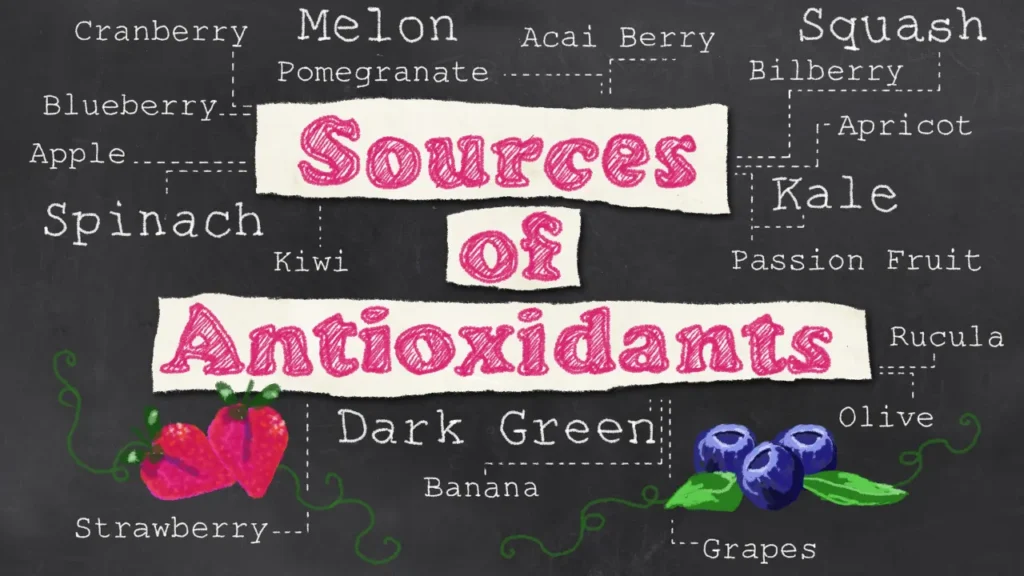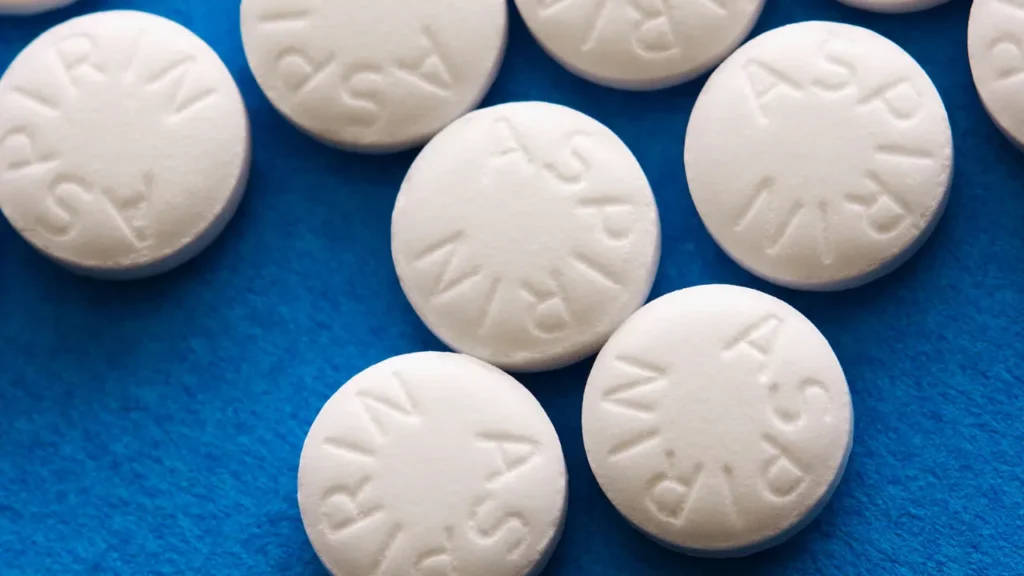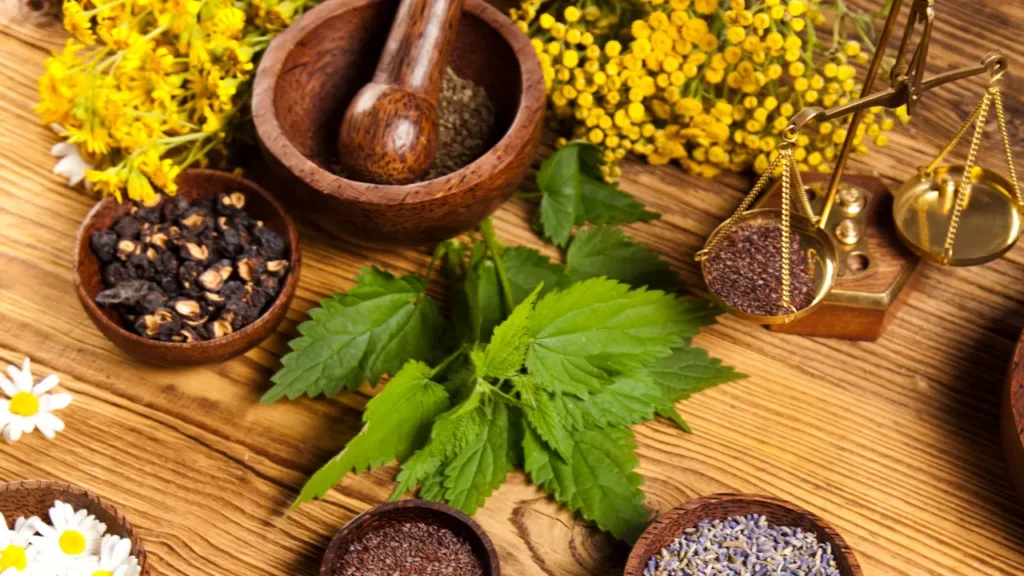The Yellow Star Grass, sometimes referred to as African Wild Potato (Hypoxis hemerocallidea), is a perennial herbaceous plant that is native to Southern Africa. Due to its alleged health advantages and long-standing use in numerous indigenous tribes, this plant has drawn much interest. The African Wild Potato has been the focus of scientific studies to clarify its potential health advantages, ideal dosage, adverse effects, and potential substance interactions in light of the rising popularity of dietary supplements. This article explores the chemistry of the African Wild Potato and the physiological processes underpinning its effects on the body and the brain. It offers helpful advice on how to utilize this dietary supplement responsibly.
You May Also Like:
5 Great Nootropic Herbs for Energy, Focus, and Productivity
Horbaach Lion’s Mane Mushroom Extract Reviews: A Leading Herbal Nootropic Product
African Wild Potato: Benefits, Dosage, Side Effects, Drug Interactions, And Other Important Information is an original (NootropicsPlanet) article.
Nature of African Wild Potato
African Wild Potato is a perennial herbaceous plant indigenous to Southern Africa and a member of the Hypoxidaceae family. Its underground bulbous tuber is loaded with several bioactive substances, including phytosterols, sapiens, sterols, and glycosides. These chemicals cause the many health advantages attributed to the African Wild Potato.
Health Benefits of African Wild Potato
- Anti-inflammatory Effects: African Wild Potatoes contain sterols and sapiens, which are responsible for their strong anti-inflammatory effects. These substances inhibit the manufacture of pro-inflammatory cytokines like tumor necrosis factor-alpha (TNF-alpha) and interleukin-6 (IL-6), lessening inflammation in various organs.
- Antioxidant Properties: By removing reactive oxygen species (ROS) and lowering lipid peroxidation, the sapiens found in African Wild Potatoes have shown antioxidant activity. The prevention of oxidative stress-related conditions like cardiovascular disease, neurological diseases, and some malignancies depends heavily on this action.
- Immune Modulation: It has been demonstrated that the Hypoxoside group of sapiens, present in African Wild Potatoes, influences the immune system by boosting the production of many cytokines and activating macrophages and natural killer cells. This immune-modulating impact could help treat immune-related illnesses and improve the body’s ability to fight infections.
- Improved prostate health has been linked to the beta-sitosterol content of African Wild Potatoes, particularly in the treatment of benign prostatic hyperplasia (BPH). The enzyme 5-alpha-reductase, which transforms testosterone into dihydrotestosterone (DHT), is hypothesized to be inhibited by beta-sitosterol. DHT plays a crucial role in the onset of BPH, and by preventing its formation, beta-sitosterol may assist in reducing the signs and symptoms of BPH.

Chemistry of African Wild Potato
Numerous biologically active substances, such as phytosterols, sapiens, sterols, and glycosides, are present in African Wild Potatoes. Sterols, which are crucial parts of plant cell membranes and have been connected to various pharmacological activities, are among the most abundant substances present in this plant. Beta-sitosterol, stigma sterol, and campestral are the main sterols present in African Wild Potatoes. Significant health advantages, such as anti-inflammatory, antioxidant, and immune-modulating activities, have been associated with these substances.
African Wild Potato also contains a significant amount of saponins, specifically the Hypoxoside group. Glycosides called sapiens are distinguished by their capacity to produce stable foams and by having surfactant characteristics. Hypoxosides are responsible for the plant’s antioxidative and immunomodulatory qualities, which contribute to its general health advantages.
Physiological Mechanisms of Action
The bioactive substances in African Wild Potatoes interact with several physiological pathways, which helps explain its claimed health advantages. The following are the main mechanisms of action:
- Inhibition of Inflammatory Pathways: Studies on African Wild Potato have revealed that its sterols and sapiens can block the production of pro-inflammatory cytokines like TNF- and IL-6, which can cause inflammation in different tissues. Its anti-inflammatory impact may benefit the management of illnesses, including arthritis, inflammatory bowel disease, and other inflammatory disorders.
- Antioxidant Activity: The sapiens in African Wild Potatoes have antioxidant effects that prevent lipid peroxidation and scavenge reactive oxygen species (ROS). This action promotes general health and well-being by preventing illnesses and cellular damage brought on by oxidative stress.
- Adaptogenic Properties: The African Wild Potato is considered an adaptogen, meaning it may help the body adapt to stress and maintain balance during times of physical or emotional strain. Its adaptogenic properties may support overall well-being and resilience.
- Hormone Control: By blocking the enzyme 5-alpha-reductase, which transforms testosterone into dihydrotestosterone (DHT), the beta-sitosterol concentration of African Wild Potatoes has been related to better prostate health. African Wild Potatoes may maintain overall hormonal balance and help ease the symptoms of benign prostatic hyperplasia (BPH) by lowering the production of DHT.

Optimal Dosage of African Wild Potato
The ideal African Wild Potato dose varies based on age, body weight, and certain medical conditions. Nevertheless, there is no established dosage for taking this product. African Wild Potato dosages ranging from 60 to 320 mg of the standardized extract per day, divided into two or three doses, have been utilized in most investigations on its effectiveness and safety.
Before beginning any supplementation, speaking with a healthcare provider is imperative because specific needs and situations may call for modifying the advised dosages. Based on particular characteristics and considering any potential side effects or interactions with other medications, healthcare professionals can assist in determining the most effective dosage.
Side Effects of African Wild Potato
African wild potato is usually considered safe when used in the recommended amounts. However, some people may experience negative consequences like nausea, diarrhea, and gastrointestinal pain. Usually minor, these adverse effects go away independently with continuous use or dose adjustments. Although allergic reactions to African Wild Potatoes are uncommon, they can happen in people who are known to be sensitive to plants of the Hypoxidaceae family. If you get symptoms like a rash, itching, or trouble breathing, stop using the medication immediately and see your doctor.
Potential Substance Interactions with African Wild Potato
Even though the African Wild Potato has a number of health advantages, it’s important to be mindful of any possible drug or chemical interactions. Among the probable interactions are:
- African Wild Potato may exacerbate the effects of anticoagulants and antiplatelet drugs, increasing the risk of bleeding. When taking this supplement along with medications like warfarin, heparin, aspirin, or clopidogrel, caution is suggested.
- Drugs used to treat diabetes: African Wild Potato may have hypoglycemic effects and may even intensify the effects of medications used to treat diabetes, increasing the risk of hypoglycemia. Before taking supplements containing African Wild Potato, check with your doctor if you are on medication to control your diabetes.
- Immunosuppressive Drugs: African Wild Potatoes may interact with immunosuppressive drugs like corticosteroids or cyclosporine due to their immunomodulatory qualities. Before consuming supplements containing African wild potatoes, check with your healthcare provider if you are taking immunosuppressive medication.

Best Responsible Uses of African Wild Potato
Take into account the following advice to ensure the best ethical use of African Wild Potato as a dietary supplement:
- Speak with a healthcare professional: Discuss your plans with a healthcare practitioner before beginning any supplementing to ensure the supplement is suitable for your unique needs and medical conditions.
- Select a Reputable Brand: Make sure the brand you choose has a standardized African wild potato extract. This ensures the supplement’s effectiveness, safety, and quality.
- Adhere to the Recommended Dosage: Always take a medication by the manufacturer’s or your healthcare provider’s advised dosage. Exceeding the advised dose can increase the risk of adverse effects and possible drug interactions.
- Keep an eye out for Adverse Reactions and Drug Interactions: When using African Wild Potato, monitor for any adverse reactions or drug interactions. Stop using it and speak with your doctor if you have any adverse side effects.
African Wild Potato:
Conclusion
African Wild Potato is a valuable botanical remedy with a long history of use in promoting immune health, reducing inflammation, supporting prostate health, and enhancing overall well-being. Its potential health benefits have been recognized for centuries, particularly within traditional African medicine systems.
While African Wild Potato offers promising health benefits, more research is needed to fully understand its mechanisms of action, optimal dosages, and potential interactions with medications. As with any herbal remedy, it’s essential to use African Wild Potatoes under the guidance of a qualified healthcare professional, especially for individuals with specific health concerns or conditions. As interest in natural and holistic approaches to health grows, the African Wild Potato offers an intriguing avenue for exploration and integration into modern healthcare practices.

References:
- African Wild Potato (Hypoxis hemerocallidea): A Review of its Traditional Uses, Phytochemistry, and Pharmacology. Link: https://www.hindawi.com/journals/ecam/2018/3064128/
- Anti-inflammatory and analgesic effects of Hypoxis hemerocallidea Fisch. & C.A. Mey (Hypoxidaceae). Link: https://www.tandfonline.com/doi/full/10.1080/14786419.2010.545357
- Hypoxis hemerocallidea Significantly Reduced Hyperglycaemia and Hyperglycaemic-Induced Oxidative Stress in the Liver and Kidney Tissues of Streptozotocin-Induced Diabetic Male Wistar Rats. Link: https://www.hindawi.com/journals/ecam/2016/9462036/
- Hypoxis (Hypoxidaceae) in African traditional medicine. Link: https://www.sciencedirect.com/science/article/abs/pii/S0378874113007393
- African Wild Potato – Uses, Side Effects, and More. Link: https://www.webmd.com/vitamins/ai/ingredientmono-671/african-wild-potato
- African potato (Hypoxis hemerocallidea): a systematic review of its chemistry, pharmacology and ethno medicinal properties. Link: https://pubmed.ncbi.nlm.nih.gov/32527245/
- Hypoxis hemerocallidea Significantly Reduced Hyperglycaemia and Hyperglycaemic-Induced Oxidative Stress in the Liver and Kidney Tissues of Streptozotocin-Induced Diabetic Male Wistar Rats. Link: https://www.ncbi.nlm.nih.gov/pmc/articles/PMC4925985/
Important Note: The information contained in this article is for general informational purposes only, and should not be construed as health or medical advice, nor is it intended to diagnose, prevent, treat, or cure any disease or health condition. Before embarking on any diet, fitness regimen, or program of nutritional supplementation, it is advisable to consult your healthcare professional in order to determine its safety and probable efficacy in terms of your individual state of health.
Regarding Nutritional Supplements Or Other Non-Prescription Health Products: If any nutritional supplements or other non-prescription health products are mentioned in the foregoing article, any claims or statements made about them have not been evaluated by the U.S. Food and Drug Administration, and such nutritional supplements or other health products are not intended to diagnose, treat, cure, or prevent any disease.


